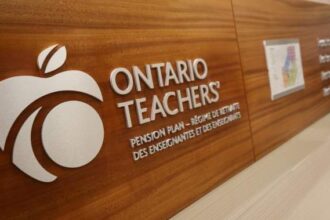The dream of homeownership collides with retirement reality for thousands of Canadians who purchase properties in their 40s, 50s, or even 60s. At CO24’s downtown Vancouver office, my desk has been flooded with inquiries from readers facing this exact dilemma: how to balance mortgage payments with retirement savings when time isn’t on your side.
“I bought at 52 thinking I’d be mortgage-free by retirement. Now at 58, I’m panicking about having enough saved,” shares Michael Denton, a Richmond resident who purchased during the 2018 market dip but now faces retirement with substantial mortgage debt remaining.
The numbers reveal a troubling trend. According to Statistics Canada, nearly 34% of Canadians aged 55-64 still carry mortgage debt, with an average remaining balance of $158,000. For these homeowners, traditional retirement timelines often need dramatic recalibration.
Financial planner Sophia Wong puts it bluntly: “The ‘freedom 55’ concept is essentially extinct for late-in-life homebuyers. We’re routinely creating plans that extend work lives to 68 or 70, especially in high-cost markets like Vancouver and Toronto.”
The central challenge isn’t merely financial—it’s psychological. Research from the Financial Consumer Agency of Canada shows that homeowners who enter retirement with mortgage debt report 27% higher stress levels and 18% lower overall satisfaction with their retirement lifestyle.
What’s the solution? For many, it’s embracing what financial advisors call the “hybrid retirement”—a model that rejects the binary work/retirement paradigm in favor of a tapered approach.
Vancouver financial advisor Raymond Chen explains: “We’re seeing success with clients who transition to part-time work in their 60s while maintaining their properties. This approach preserves their housing investment while providing income to service debt until a full property sale makes sense—typically when they need to downsize for health or mobility reasons.”
For those determined to stay in their homes, innovative financial products are emerging. Reverse mortgages have seen a 37% increase in adoption among Canadian homeowners aged 60-75 since 2019, though these come with significant long-term costs that can erode inheritance plans.
Tax efficiency becomes paramount for late-life homebuyers approaching retirement. “Maximizing TFSA contributions before RRSP deposits often makes more sense for these homeowners,” notes tax specialist Priya Sharma. “The flexibility of tax-free withdrawals from TFSAs can be crucial when balancing variable income against fixed mortgage payments.”
The retirement planning landscape is further complicated by Canada’s regional housing disparities. While a Toronto homeowner might be sitting on substantial equity despite a large mortgage, their counterpart in Moncton might have a smaller mortgage but proportionately less equity to leverage in retirement.
For those feeling trapped by their housing decisions, professional financial advice becomes essential. Certified Financial Planner James Wilson recommends a complete financial overhaul for clients within 15 years of retirement who still carry significant mortgage debt.
“We need to examine everything—accelerated payment strategies, work extension plans, downsizing timelines, and potential rental income from portions of the property. There’s rarely a one-size solution, but there’s almost always a viable path forward,” Wilson states.
The retirement planning process for older homeowners must also account for Canada’s evolving pension landscape. With CPP enhancement phasing in gradually until 2025, many near-retirees face complex decisions about when to begin drawing government benefits.
“Delaying CPP until 70 can increase monthly benefits by 42% compared to taking it at 65,” explains retirement specialist Amira Hassan. “For homeowners with mortgage debt, this enhancement can be the difference between keeping or selling their property in early retirement.”
What’s becoming increasingly clear is that financial literacy and proactive planning must improve among older homeowners. According to the Financial Planning Standards Council, only 22% of Canadians with mortgages who are within ten years of retirement have a comprehensive written financial plan.
As Canada’s housing market continues its volatile trajectory, one truth remains constant: homeownership and retirement planning have become inseparable conversations that demand increasingly sophisticated strategies, especially for those who purchase properties later in life.
The dream of mortgage-free golden years may require adjustment, but with creative planning, informed decisions, and realistic expectations, Canada’s older homebuyers can still build retirement security—even if the path looks different than they once imagined.










